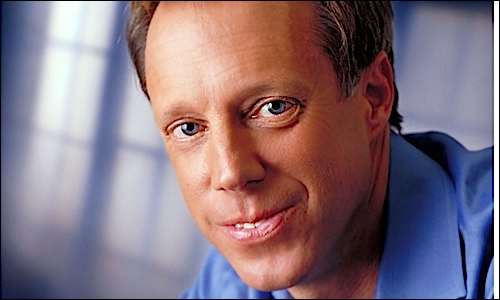By Steven Petrow

Is civil disobedience bad manners?
Q: After the recent election in Maine, where 53 percent of voters revoked the right of gays and lesbians to marry, I've got to say I'm tired of these post-election blues. I'm tired of our right to marry being an electoral issue. I'm tired of the tyranny of the majority. I'm just plain over it. I'm old enough to remember the civil disobedience that ACT UP staged during the height of the HIV/AIDS epidemic and how effective that was in creating change. Since you're the to-go guy for manners, I'm wondering if you have any thoughts about one's social obligations regarding political protest and dissent. Because I'm ready.
A: First, let me say that you're not alone in feeling outrage at what happened at the polls for the second November in a row (Californians revoked the rights of LGBT people to marry just a year ago). Many activists in our community are stymied by these results, in part because of the overwhelming influence and dollars from the Catholic Church and, in this latest voting, from the National Organization for Marriage.
A former ACT UP leader recently told me,
"Civil disobedience is the missing piece of activism in our portfolio these days." And he should know as one who protested vehemently against drug companies when they were price-gouging patients with HIV/AIDS here and overseas during the 1980s and '90s.
But the truth is that the very nature of civil disobedience is its high code of conduct, as per the 1849 essay by Henry David Thoreau that is now commonly called "Civil Disobedience" but was originally titled "Resistance to Government." Indeed, breaking the law for a noble cause, while illegal, is not immoral, unethical nor bad manners. What is problematic is violence of any kind (such as the murder of that abortion doctor in Kansas earlier this year by a pro-life activist) as well as attempts to curb free speech (like the Catholic Church does, along with the Rush Limbaughs of the world).
What is important about civil disobedience is that it's an opportunity to present arguments and persuade people who disagree with you that you're right, in this case the right for LGBT people to marry. Sometimes it takes actions like this to "help" others hear and understand.
What's a bi guy to do?
Q: My favorite restaurants haven't changed since I became bisexual and stopped seeing men exclusively, but eating at those places is a lot less fun. Gay guys around my neighborhood look at me funny when I'm out with a woman. Please don't tell me moving away from my beloved San Francisco is the only way to be comfortable in public again.
A: No, but you may need to stop going to all-gay restaurants (and by that I mean eateries frequented primarily by same-sex couples). As much as homophobia is a problem in this country, along the same lines (OK, not as much) there are strains of heterophobia in the LGBT community. Never heard of homophobia's first cousin, heterophobia? It's a term used to describe irrational fear of, aversion to, or discrimination against heterosexuals. If you and your girlfriend are the only opposite sex pair in a restaurant or club, not only will you appear as outsiders, but in some way you may be perceived as social trespassers or just made to feel unwelcome.
Years ago, I went into a gay club in New York with a straight woman friend. When I ordered, the bartender, instead of serving us, actually asked us to leave. Even when I told him that I was gay, he reiterated his request. Times have changed somewhat, and our communities tend to mix more comfortably now. But my point is that heterophobia is as misplaced as homophobia, if less prevalent and without such serious consequences.
Now, what's a straight guy to do?
Q: As the only straight person invited to my gay friend's weekend house, will I be uncomfortable or out of place? I think he said there would be about four other guys there.
A: If your gay friend did any thinking (which we all do), he would have factored this into his invitation before doing so. Since the first rule of being a good host is to make your guests feel comfortable, my guess is that he thinks you will be. And that he imagines his other friends will be, too. (Or do you imagine they'll all be lusting after you?)
Consider this: While sexual identity is important for many LGBT people, it's rarely our only defining characteristic. We've got gender, age, profession, religion, education and so on, as part of that great cocktail called "me." Certainly, you'll share something with these fellows, even if sexual orientation is not one of them. What you need to bring is a good attitude and your host needs to provide a welcome environment for all.










